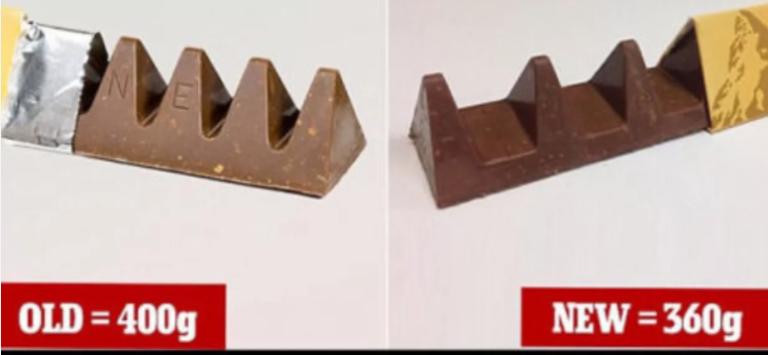You may recall a spike in Google searches for “What’s the European Union?” after British citizens voted in June to leave the EU. When I woke up in London the morning of November 9th, Londoners, no doubt feeling a bit smug now that the US has had its own ballot-box surprise, quipped that the most googled query in the United States that morning was “What is the US President?”
Back in the USA after a extended trip to Europe, I’ve found people don’t laugh nearly as hard as Brits did; nor, do I suspect, did the British find as much humor in their compatriots’ Brexit googling as did Americans.
Whatever direction your sense of humor leans, the parallels between the economic, social, and political dangers facing the United States and Europe are striking. And the results of the US presidential election have sent the risk level through the roof on two of the biggest concerns of 2016: deepening fractures within the European Union, and rising nationalist populism in the United States –and the policy consequences and economic and social impacts of both.

On November 8th, Election Day in America, Twitter in the UK was aflutter over Toblerone’s announcement that it would change the side of the iconic triangles in its signature chocolate bar because of rising costs. What once had looked like an orderly line of mountains now looked like a bad case of dentistry or the result of a punch in the face.
Some of the twitterati lamented that people were so upset about Toblerone’s announcement that they were ignoring a potentially historic election in the United States. But the fabled chocolate bar was, in fact, a good metaphor for the choice that both Brexit and Donald Trump voters made. In their fervor to stick it to the powers that be and protest globalization, neither group thought through the consequences, which would leave them worse off than before.
In America, it’s only a matter of time before the voters who thought Trump would make their lives and pocketbooks better figure out that his policies are unlikely to do so.
Mondelez, which makes Toblerone, insisted that the change was not Brexit related but it’s unlikely that it convinced many people. It was way too soon after other companies raising prices in the UK because of falling pound raised import prices.
From London, I traveled to Belgium on the Eurostar after passing through newly enhanced security checks at the train station. In Brussels, I marveled at how the variety of cuisines had increased since my last visit five years ago: sushi, Thai, Indian, you name it. Global influences were flourishing in the country where the Wallonia regional parliament had temporarily blocked the EU-Canada trade deal just a few weeks earlier. Graffiti on at least one highway overpass read “Stop TPP,” referring to the Trans Pacific Partnership trade agreement.
Despite the backlash against globalization shared by Trump supporters, Belgians were not a fan of the man himself. Nerves were still frayed over Trump’s January comments to the effect that Brussels was a “hell hole,” translated idiomatically as “rat hole.”
Belgium, like America, had its own experiences with nationalist populists tapping into ethnic tensions like Bart de Wever of the New Flemish Alliance – the controversial mayor of Antwerp, where I spent a day. Ironically, I was there visiting the impressive Red Star Line Museum, which presented a warm, human view of both the European emigrants (including Albert Einstein) who traveled to the US on Red Star boats in the 20th century and of the refugees from countries around the world.
My next stop was in Luxembourg to give a talk at the European Stability Mechanism, an inter-governmental financial organization created in 2012 to provide loans to troubled Eurozone countries or banks. It replaced two temporary post-2008 crisis mechanisms to become a permanent “firewall” against economic disruptions. The ESM exemplified the slow but steady progress the EU had been making to improve financial coordination among its members.

I then headed east. In a train station in Germany, the newsstand was full of newspaper and magazine covers expressing clear shock. “OH MY GOD!” read one, in English. “Stranger in the White House,” read another, and “The End of the World as We Know It.” A cranky shop lady yelled at me for taking pictures of the magazine covers before I hopped on the night train to Vienna.
In Austria, I found quite different reactions. One poll showed that 44 percent of respondents believed that Austria needed a Trump of its own.

On my final stop, in Oslo, the media was as alarmed about the US election results as the German media was. Norway plays a special role in the Brexit debate, as its special relationship with the European Union has been touted as a possible model for what might come in the future –except for two key details anathema to the Brexiteers, movement across the EU border and paying into the EU budget, to which Norway had agreed in exchange for market access.
Before rushing off to the airport, I caught part of the first morning at the Zero climate conference. While I understood just a bit of the sessions in Norwegian, the message in the presentation slides was very clear: Trump was a great source of worry because of his professed views on climate change. Norway, which has become wealthy because of its oil resources, that week was debating its own energy and transportation policies. The trade-offs and choices involved in policies to reduce greenhouse gas emissions are real; but they deserve thoughtful, candid discussions.
I headed home to the Midwest mulling over a question that came up in several countries: was I optimistic or pessimistic about the future for Europe and the United States? I wish I could be optimistic, but reality is too powerful.
The trend was as clear in the EU as in the US: powerful forces were pulling nations and citizens apart at a time when they need to come together to fix serious problems in the world. Across the Atlantic, many people remain who see the benefit of cooperation across borders and differences, and who are alert to the dangers the world faces.
But will they -will we- do enough about the rising forces of populist nationalism in time to prevent severe damage to democracies and economies across the Atlantic?
I fear not. A critical mass of voters seems to be falling for the oldest political trick in the book: deflecting blame on immigrants and outsiders without offering real solutions to the economic disruptions that have unleashed social and political strife. The political outlook in the United States remains …interesting, in the sense of the old Chinese curse. And in Europe, politics looks equally “interesting.”
Italy’s December 4th referendum looks likely to usher in more political instability even as the country continues to wrestle with a bank crisis. In France, Francois Fillon, running on an anti-immigrant, anti-Islam platform, just won the nomination to become the center-right Republican Party’s presidential candidate in next Spring’s election, competing against National Front’s Marine Le Pen. Neither has warm and fuzzy feelings about the EU.
The details are different on either side of the Atlantic, but the broad risk outlines are eerily similar.
- The Gray Rhino Wrangler on Substack - January 1, 2025
- Gray Rhino Risks and Responses to Watch in 2024 - January 10, 2024
- In the Media 2023 - December 31, 2023


